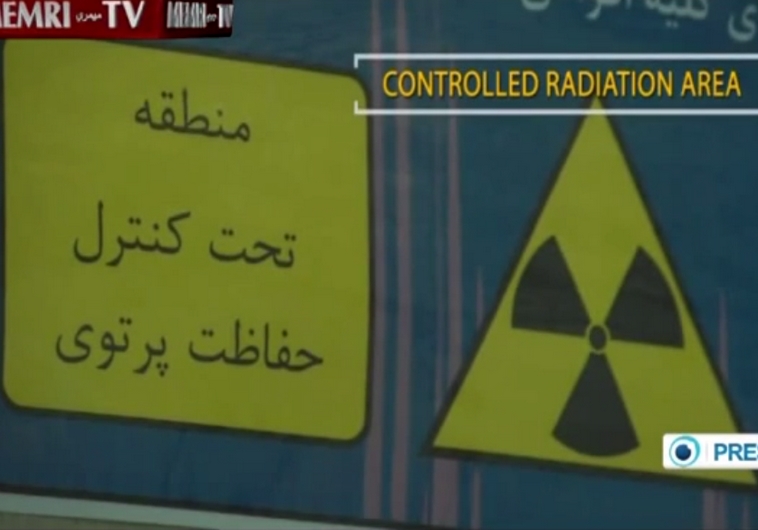WASHINGTON – Negotiations for a comprehensive nuclear agreement with Iran may require more time than planned, officials involved in the talks began suggesting on Thursday.
The talks are set to end on November 24 after 10 months of effort.
“Key questions” remain unresolved, Foreign Minister Laurent Fabius said in Paris.
“I can’t make any predictions at this time,” Fabius said. “I think it will only be on the day of the 24th that we’ll be able to make an assessment.”
But in Moscow, one Russian official entertained the possibility of extending the talks.
Diplomats at the table from the P5+1 – Russia, China, Germany, France, the United Kingdom, and the United States – have all said their focus remains on meeting the deadline.

“It is not completely ruled out that more time could be needed to reach a mutually beneficial compromise,” Russian Foreign Ministry spokesman Alexander Lukashevich told local media. “We have emphasized that all parties are striving to meet this deadline,” Lukashevich continued. “But what is more important, a deadline or a real agreement?”
Another Western official, speaking anonymously without authorization to speak, said the parties could “see the outline of a final deal emerging by November 24, but probably not the deal itself.”
Back in November 2013, the P5+1 agreed with Iran to put off resolution of the crisis with an interim deal, capping some of Iran’s nuclear work and granting the parties a year to negotiate toward a comprehensive agreement.
The parties set a deadline of half that time, until July 20, 2014, to negotiate, and granted themselves four months more to hammer out the deal. The interim agreement, formally known as the Joint Plan of Action, would accommodate another two-month extension.
Some officials are suggesting amending that interim agreement to allow for more time: a second extension of several months, coupled with additional sanctions relief for the Iranian economy, still in recession.
“What is very likely is to reach a more detailed version of the Geneva [Joint Plan of Action] agreement, enough to tackle the recession in Iran and also to extend the talks,” a senior Iranian official said on Thursday.
Iran’s primary goal from the talks is the repeal of all sanctions, passed and enforced by the United Nations Security Council, the European Union, and the United States.
A second interim deal would change the dynamic of the talks. Speaking to the Charlie Rose Show last week, Secretary of State John Kerry suggested US patience might be running out as parties mulled continued extensions.
“I hope the Iranians will not get stuck in a tree of their own making on one demand or another in order to try to find a way together,” Kerry said. “It’s not hard to prove your program is peaceful if that’s what you want to do.”
The talks are set to end on November 24 after 10 months of effort.
“Key questions” remain unresolved, Foreign Minister Laurent Fabius said in Paris.
“I can’t make any predictions at this time,” Fabius said. “I think it will only be on the day of the 24th that we’ll be able to make an assessment.”
But in Moscow, one Russian official entertained the possibility of extending the talks.
Diplomats at the table from the P5+1 – Russia, China, Germany, France, the United Kingdom, and the United States – have all said their focus remains on meeting the deadline.
“It is not completely ruled out that more time could be needed to reach a mutually beneficial compromise,” Russian Foreign Ministry spokesman Alexander Lukashevich told local media. “We have emphasized that all parties are striving to meet this deadline,” Lukashevich continued. “But what is more important, a deadline or a real agreement?”
Another Western official, speaking anonymously without authorization to speak, said the parties could “see the outline of a final deal emerging by November 24, but probably not the deal itself.”
Back in November 2013, the P5+1 agreed with Iran to put off resolution of the crisis with an interim deal, capping some of Iran’s nuclear work and granting the parties a year to negotiate toward a comprehensive agreement.
The parties set a deadline of half that time, until July 20, 2014, to negotiate, and granted themselves four months more to hammer out the deal. The interim agreement, formally known as the Joint Plan of Action, would accommodate another two-month extension.
Some officials are suggesting amending that interim agreement to allow for more time: a second extension of several months, coupled with additional sanctions relief for the Iranian economy, still in recession.
“What is very likely is to reach a more detailed version of the Geneva [Joint Plan of Action] agreement, enough to tackle the recession in Iran and also to extend the talks,” a senior Iranian official said on Thursday.
Iran’s primary goal from the talks is the repeal of all sanctions, passed and enforced by the United Nations Security Council, the European Union, and the United States.
A second interim deal would change the dynamic of the talks. Speaking to the Charlie Rose Show last week, Secretary of State John Kerry suggested US patience might be running out as parties mulled continued extensions.
“I hope the Iranians will not get stuck in a tree of their own making on one demand or another in order to try to find a way together,” Kerry said. “It’s not hard to prove your program is peaceful if that’s what you want to do.”

No comments :
Post a Comment